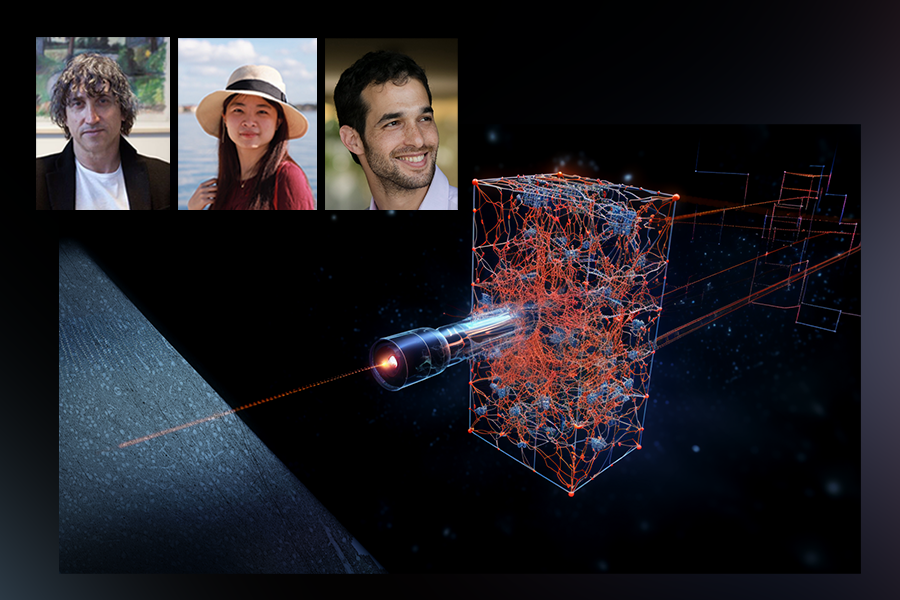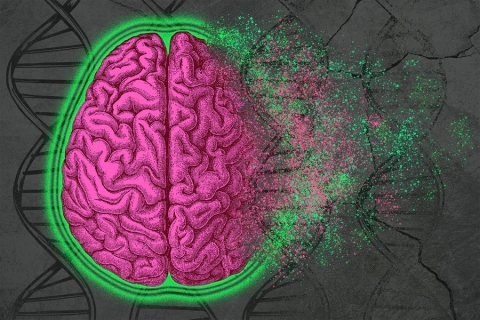The National Institute for Health (NIH) has awarded funding to a project supported by MIT CSAIL through its BRAIN Initiative Connectivity Across Scales (BRAIN CONNECTS) program. The work is part of the NIH’s Brain Research Through Advancing Innovative Neurotechnologies® (BRAIN) Initiative, which will contribute to neuroscience research and development, illuminate foundational principles governing the circuit basis of behavior, and inform new approaches to the treatment of human brain disorders.
The project, BRAIN CONNECTS: Rapid and Cost-Effective Connectomics with Intelligent Image Acquisition, Reconstruction, and Querying, is led by Harvard University professors Aravi Samuel and Jeff Lichtman, together with MIT CSAIL professor Nir Shavit, who is a principal investigator on the research, and Yaron Meirovitch, a former postdoc at the lab who is currently a research associate at the Harvard University Center for Brain Science. The Johns Hopkins University Applied Physics Laboratory’s (APL) Research and Exploratory Development Mission Area (RED MA) will support their work by providing scalable cloud computing pipelines, systems engineering, and machine learning expertise.
“Among its exciting applications, this project shows that machine learning can be used to democratize and scale inexpensive electron microscopes, enhancing their speed of acquisition by orders of magnitude,” says Shavit.
The CSAIL-involved project is related to connectomics, a field of study that focuses on the structural and functional connectivity maps in the brain. The cross-institutional team’s work proposes a new and more affordable imaging strategy that will allow more teams to engage in connectomics so that they can complete portions of larger mammalian brains.
To image brain tissue, connectomics researchers have used scanning electron microscopes (SEMs). Unfortunately, many high-speed models, such as multibeam SEMs, have been expensive, while single-beam SEMs have been too slow to be useful in connectomics. The CSAIL project was originally developed by two students in the Shavit group: Lu Mi MCS ‘19 PhD ‘22, who is now a postdoc at the Allen Institute for Brain Science, and Meirovitch, who is an inventor and lead author of an upcoming publication about the new intelligent acquisition pipeline which uses deep learning in real-time during the microscopy process.
The work augments the architecture of the single-beam models with artificial intelligence, bringing the microscopes closer to the speed of their multibeam counterparts without substantially increasing costs. These improvements will make connectomics tools more accessible and efficient, scaling them to a much larger neuroscience community while fostering new collaboration opportunities.
“Our goal is to lower the cost of electron microscopy acquisition in order to allow every neuroscience laboratory to combine connectomics into their routine lab methodologies,” says Meirovitch.
“Current techniques lack either the resolution or the ability to scale across and map out large regions of the entire brain, information that is essential for unraveling the mysteries of this incredible organ,” said John Ngai, director of the NIH BRAIN Initiative. “Following years of careful planning and input from the scientific community, BRAIN CONNECTS — which represents our third, large-scale transformative project — aims to develop the tools needed to obtain brain-wide connectivity maps at unprecedented levels of detail and scale.”
In 2023, the BRAIN CONNECTS initiative will provide 11 awards to institutions across the country, projected to total $150 million over 5 years. Research reported in this announcement was supported by the NIH BRAIN Initiative under award number 1U01NS132158-01.




